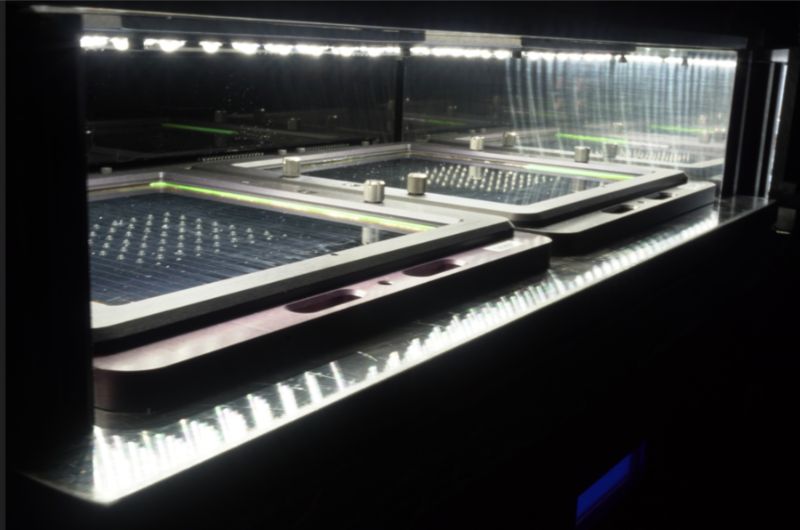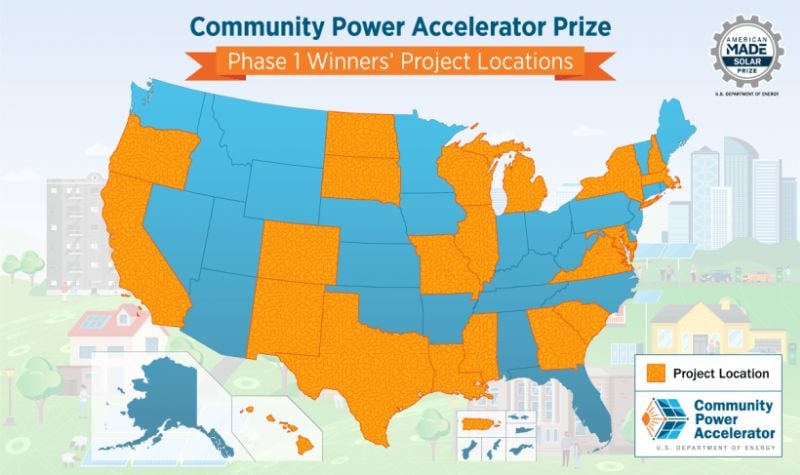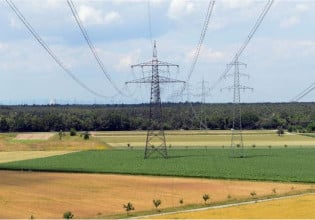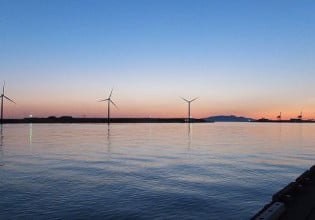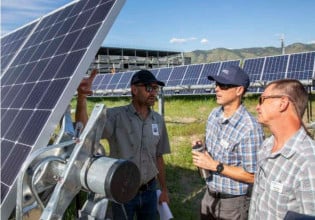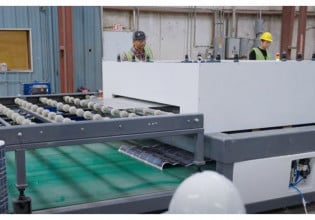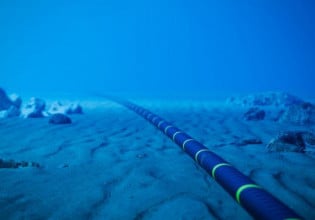Cleantech Projects Get $8B Infusion From DOE
The U.S. Department of Energy is doling out federal cash for PV production, recycling, community solar projects, and electric heat pump manufacturing.
The U.S. Department of Energy has announced several clean energy-related investments spanning domestic solar panel manufacturing, component recycling, community solar projects, transitioning federal facilities to renewables, and expanding electric heat pump manufacturing.
Solar panels. Image used courtesy of Pexels
The following four recent announcements total a whopping $8.3 billion.
$82M for Solar Supply Chain
The DOE will provide $52 million for 19 projects across 12 states that boost the country’s solar photovoltaic (PV) supply chain. It will also provide $30 million for technologies integrating solar into the power grid.
First, the agency selected ten projects for its $28 million Photovoltaics Research and Development program, which supports efforts to reduce costs and supply chain challenges and advance durable and recyclable solar components and perovskite technologies. Almost all recipients are universities, except Chicago-based Locusview, Solarcycle in California, and Texas’s Electroninks Incorporated. The eight recycling projects will reduce costs and boost the efficiency of solar panel recycling processes.
Another two perovskite module projects (receiving $9 million each) will address the limitations in perovskite solar cell devices regarding durability, efficiency, and scale-up potential: The Massachusetts Institute of Technology is contributing $2.25 million in cost-sharing to build a center for the co-design of durable, reproducible, and efficient perovskite tandems, involving industry partners CubicPV and Verde Technologies. The University of Colorado-Boulder will contribute $3.2 million in cost-sharing for a project focusing on tandems for efficient and advanced modules using ultrastable perovskites.
CubicPV tests 150mm perovskite mini-modules in an accelerated degradation system. Image used courtesy of MIT
Next comes several awards stemming from the Solar Manufacturing Incubator program. The DOE will provide $16 million for two projects in Ohio—led by First Solar and Toledo Solar—to test and demonstrate ways to increase domestic manufacturing for cadmium telluride (CdTe), the second most common PV material behind silicon. Another seven projects will receive $7.8 million to de-risk new technologies and manufacturing methods; those projects range from improving the power output of CdTe modules via a high-performance superstrate to developing a foldable PV solar screen.
The DOE also announced new funding ($30 million) for grid management projects to address new challenges in planning operations amid the transition to renewables and inverter-based power electronic grid interfaces. The agency expects to make nine to 13 awards under the program, each ranging from $2 to $4 million. (Concept papers are due on June 5.)
$8B for Community Solar Programs
The DOE announced it would commit $8 billion in prize money, private capital, and loan commitments across several community solar programs.
The first is a $3 billion conditional commitment from the DOE’s Loan Programs Office to support loans originated by Texas-based solar firm Sunnova as part of its new Project Hestia, which would provide the cash flows needed to expand access to Sunnova’s services in underserved communities.
A map of project locations for the 25 winners of the first phase of the Community Power Accelerator Prize. Image used courtesy of DOE
The DOE also selected 25 teams across 16 states to participate in its $10 million Community Power Accelerator Prize competition, aiming to form a nationwide network of community solar project developers. The winners could deploy as much as 150 megawatts (enough for nearly 30,000 homes) and access $5 billion in private-sector financing. The competitors will win $50,000 and advance to the second phase, unlocking up to $200,000.
The DOE also opened submissions for its second annual American-Made Sunny Awards for Equitable Community Solar, which offers $200,000 to state, local, Tribal, and utility-based solar programs adopting innovative methods to increase cost-saving and other benefits for customers. Last year’s inaugural program served awards to over 30 projects; the five grand prize winners provided $4.3 million in savings combined.
Decarbonizing Colorado’s Federal Facilities
The DOE signed a memorandum of understanding with Minnesota-headquartered utility firm Xcel Energy to transition its federal facilities in Colorado to carbon pollution-free electricity. The pair will begin a three-month work process to develop a plan to supply federal customers in Colorado with 100% carbon emissions-free electricity annually by the end of the decade.
Colorado’s Denver Federal Center hosts the largest grouping of federal bodies outside of Washington, D.C. The state is also home to National Renewable Energy Laboratory campuses.
Terms of the deal were not disclosed.
Through a memorandum of understanding with Xcel Energy, the DOE will transition Colorado's federal facilities to carbon pollution-free electricity. Image used courtesy of Bryan Bechtold/NREL
Electric Heat Pump Manufacturing Funding Boosts Clean Energy Jobs
Finally, the DOE is providing a $250 million funding opportunity—supported by the Inflation Reduction Act—to boost domestic electric heat pump manufacturing, stemming from President Joe Biden’s authorization last year to use the Defense Production Act to increase domestic cleantech production.
Specifically, the program will serve domestic manufacturers interested in building new commercial-scale facilities or expanding their existing production capacity to develop more electric heat pump systems, components, and materials. It also funds retool/retrofit projects to switch manufacturing from HVAC systems or water heating equipment to heat pumps. The DOE’s funding call mentions focusing on high-paying clean energy manufacturing jobs, though no specifics were provided.



